
Funds for rental assistance to prevent eviction based on non-payment are available. How does someone in need access them and what do the funds cover?

Funds for rental assistance to prevent eviction based on non-payment are available. How does someone in need access them and what do the funds cover?

So, the clock is ticking. Where do people go if they are evicted due to the lifting of the moratorium?
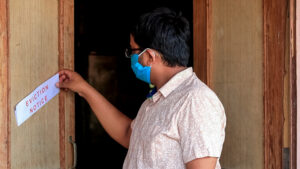
According to housing expert Jim Parrott and economist Mark Zandi, if the eviction moratorium had ended in December 2020, 10 million American renters were behind on payments, and would have been at risk of eviction. To put that in perspective, during the Great Recession of 2008, 7 million Americans experienced foreclosure over a period of four years.

We’ve been saying it for a while…a storm is coming.
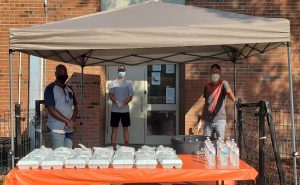
We have responded to the uncertainties brought on by COVID-19 by continuing to provide meals through the Community Café, as food is first among all basic needs. Although we have had to temporarily suspend a regular schedule of clothing and food distribution, we are still providing those resources on an emergency basis.
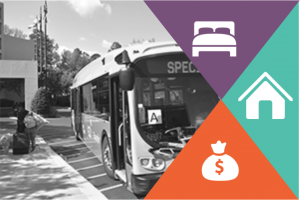
The focus of our mission to offer food, shelter, and a future to neighbors in need is always the heart of what we do, but “how” we do that work is just as important. That’s why collaboration is one of our core values. We choose to do this work “with” the community. The current challenge we face and the opportunities it presents is no different.
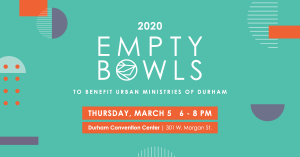
This year marks the 14th annual Empty Bowls fundraiser for Urban Ministries of Durham. Not only is it our largest fundraising event, but it is an opportunity to feel the solidarity of our community working together toward our mission to end homelessness and fight poverty by offering food, shelter and a future to neighbors in need.
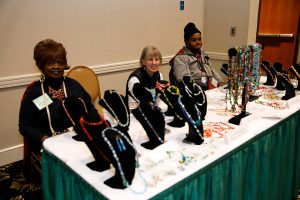
At UMD, we have many unique volunteers that take time every month, or even every week to serve their neighbors in need. We are so incredibly grateful for all of them and want to take the opportunity to highlight their stories and experiences. This post will be the first in a series of posts about how they help at UMD and how their volunteer work impacts them and their community!
Ahead of this year’s staff holiday party, staff members took some time to reflect on some of the most meaningful, impactful moments that happened here at the shelter in 2019. As we reflect on the past year, we want to share some of these beautiful, behind-the-scenes glimpses of hope for a new future that happened with your support.
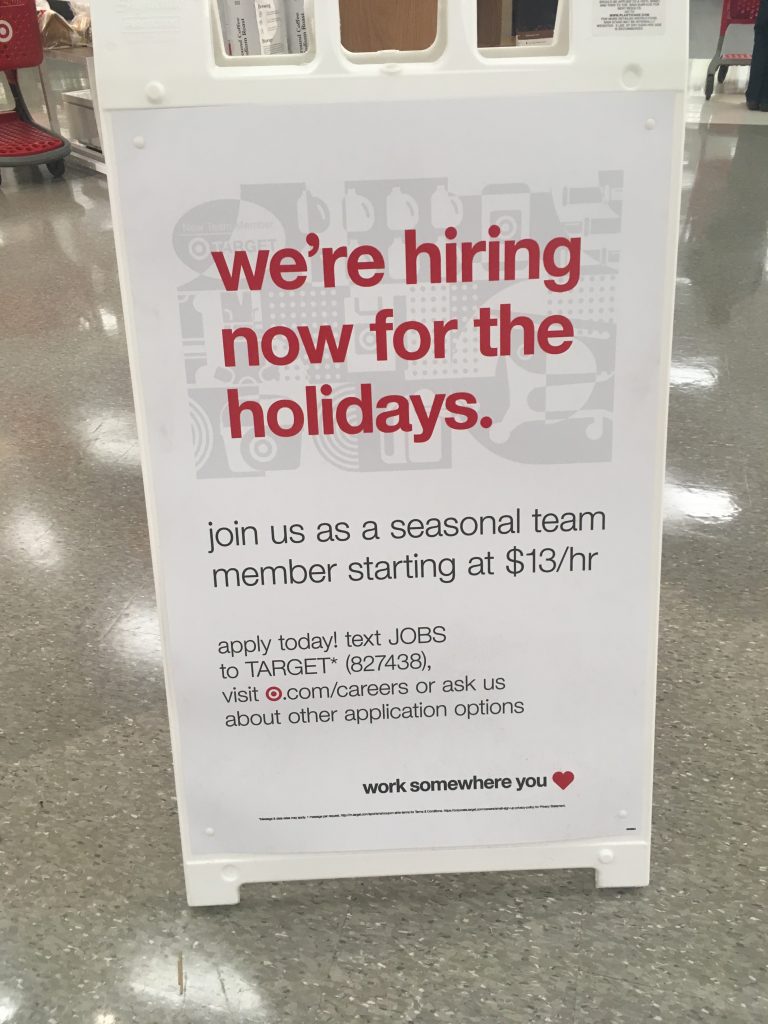
“Help wanted.” It’s not roadside Sharpie scrawl on discarded cardboard, but corporate lettering on official promotional signage nestled among holiday decorations. Businesses are hiring, but just for “the season.” It’s almost hard to remember that ‘Black Friday’ is about profit margins for the year rather than risking a black eye from an early morning brawl for the latest “it” toy or heavily discounted television. Cramming in the need to make it financially for the year in a matter of weeks is big business that means extra help at the checkout counter, the customer service help desk, on the stock floor, or driving the delivery truck. These temporary hires are supposedly what help keep us consumers happy, and they’re the elves that keep Santa (and CEOs) in business. All of this extra movement of people and goods is part of the “bustle” of our holidays. And this year, the labor market needs a lot more workers to make the holidays happen.

We recently published a post on Encountering Homeless People, but we want to provide a special holiday edition. The holiday season is a popular time for interest in offering assistance to people experiencing homelessness. It is also a season that is meaningful for many, but we don’t always share the same meaning, assumptions, and experiences. Keeping that in the forefront of our minds this holiday season is critical to how we approach anyone, but particularly how we approach those who are homeless.

Tired of racking your brain each year trying to pick out gifts for your adult family members? Try some of these gifts that give back to UMD.

***DISCLAIMER: The following tools for engagement are guidelines and suggestions based on the experiences of UMD employees interacting with the homeless population. By no means are these hard and fast rules; it is important to consider the context of each individual circumstance.

The vote is in. The Affordable Housing Bond has passed in Durham. Which only means one thing . . .

Thank you joining us again. This post is Part 2 in our series on the Durham Affordable Housing Bond. If you didn’t catch Part 1: The Facts, click here.
At UMD, we talk a lot about affordable housing. So, with a bond referendum on the ballot for November 5th, we realize we need to do our part by making sure that our donors, volunteers, and Durham neighbors can utilize us as a thought partner in that conversation. The purpose of this post is to round up and research information as we have it, and put it in your hands.